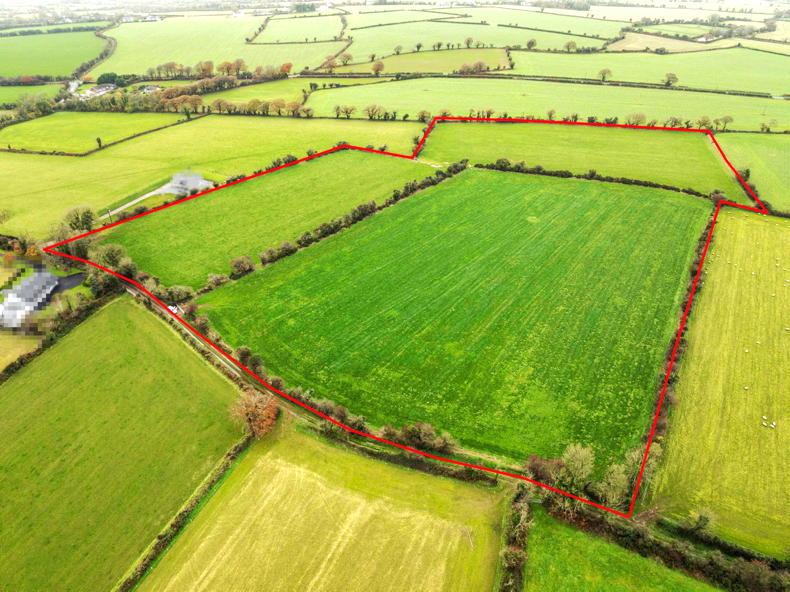Farmers feel under siege on their own land. There was something seismic about the IFA’s recent move to tell walkers with dogs that they are no longer welcome on farms.
It comes following yet another spate of dog attacks on sheep flocks, despite years of farmers warning that something needed to change.
However, dog attacks are far from the only concern landowners have. Farmers are worried that they won’t be allowed to control pigeons and crow numbers attacking their crops.
There’s the possibility that even if an exemption is gained to allow necessary wildlife control, they won’t have anything to shoot them with due to a ban on guns using lead shot.
Landowners and farmers are also closely watching court cases around occupier liability. And friction between farmers and neighbours, many from urban backgrounds, is a reality.
Tillage farmers need to protect their crops from bird attacks – specifically wood pigeons and crows. A public consultation on the renewal of permission to do that ended last week.
Paul Carberry of the Irish Country Sports Association says the renewal gets more difficult every year.
“We’re all being PC’d and PR’d into being almost guilty to admit you’ve ever held a gun,” he says. “If we can’t legitimately assist in maintaining the balance of nature, as we have done for decades, nothing will protect crops from bird damage.
“We’re all environmentally focused,” he adds.
“We have lived it in the fields, we want to keep living it. We’re the ones who will be the agents of change. We want to help establish scientific fact around bird numbers.”
Of course, in order to control birds and other pests, farmers need to be able to use their guns. That too is under threat, with the proposed EU ban on lead shot in wetland areas meaning most shotguns in Ireland would be rendered unusable and obsolete.
While this issue has been rumbling along for a number of years, it’s coming to a head. Legislation is already in place in many individual member states preventing the use of lead shot in wetlands, and last September the Irish Government, voting in the European Chemicals Agency (ECHA), supported this becoming EU law.
Advocates say 20,0000t of lead shot pollutes Europe annually, affecting a million waterbirds. The definition of wetlands could be extended to all peatland, which would take in huge volumes of Irish farmland. It could see 100,000 farmers’ guns rendered obsolete, with an estimated replacement cost of €70m.
Wider concerns
There are wider concerns around people accessing farms. As Ireland becomes increasingly litigious, a handful of recent cases have been closely watched by farmers.
In one, a walker in Wicklow was awarded €40,000 by the Circuit Court having tripped in a hole in a railway sleeper. Maintenance of the walkway was the central issue. The award was overturned in the High Court.
The fact that the National Parks and Wildlife Service (NPWS) was the landowner in this case didn’t deflect from the fears farmers had that this case might lead to the opening of the floodgates.
However, in recent years, the courts have constantly and consistently found in favour of landowners. It wasn’t always the case, but the Occupiers Liability Act of 1995 established that the duty of care of landowners was not to be reckless to recreational users.
This is a wider term than you might first think. It applies to walkers, shooters, hunters including members of foxhunts and gun clubs. Even trespassers are regarded in law as recreational users. Effectively, this means you must take things as you find them, and accept the normal risks associated with being out on farmland.
The increase in people from urban backgrounds relocating to the countryside has led to some other pinch points.
Stories circulate of complaints about farmers cutting silage or corn late at night, even to the point where gardaí ask the farmers to stop working. I know a farmer who was handed a bill for rodenticide from someone whose house was beside a field of beet, the householder wanting the farmer to pay for control of “the rats from your field”.
Complaints
Complaints around noise and smell from farmyards have led to court cases, with farmers sometimes losing.
Of course, maintaining good relations is a two-way street. Many farmers routinely contact neighbours before spreading slurry or spraying crops as a courtesy, allowing windows to be closed, clotheslines to be emptied and children to be brought indoors.
A law introduced in California determines that people who choose to live in the countryside must accept the normal work practices on farms. This is something Irish farmers might like to see replicated if the level of friction escalates. The lockdowns have seen more walkers in rural Ireland than ever before. It represents an opportunity for people to see the daily activity on Irish farms, as nature plays out in the fields and hedgerows.
Perhaps a new mutual understanding of the place farming occupies in rural life can be reached.









SHARING OPTIONS